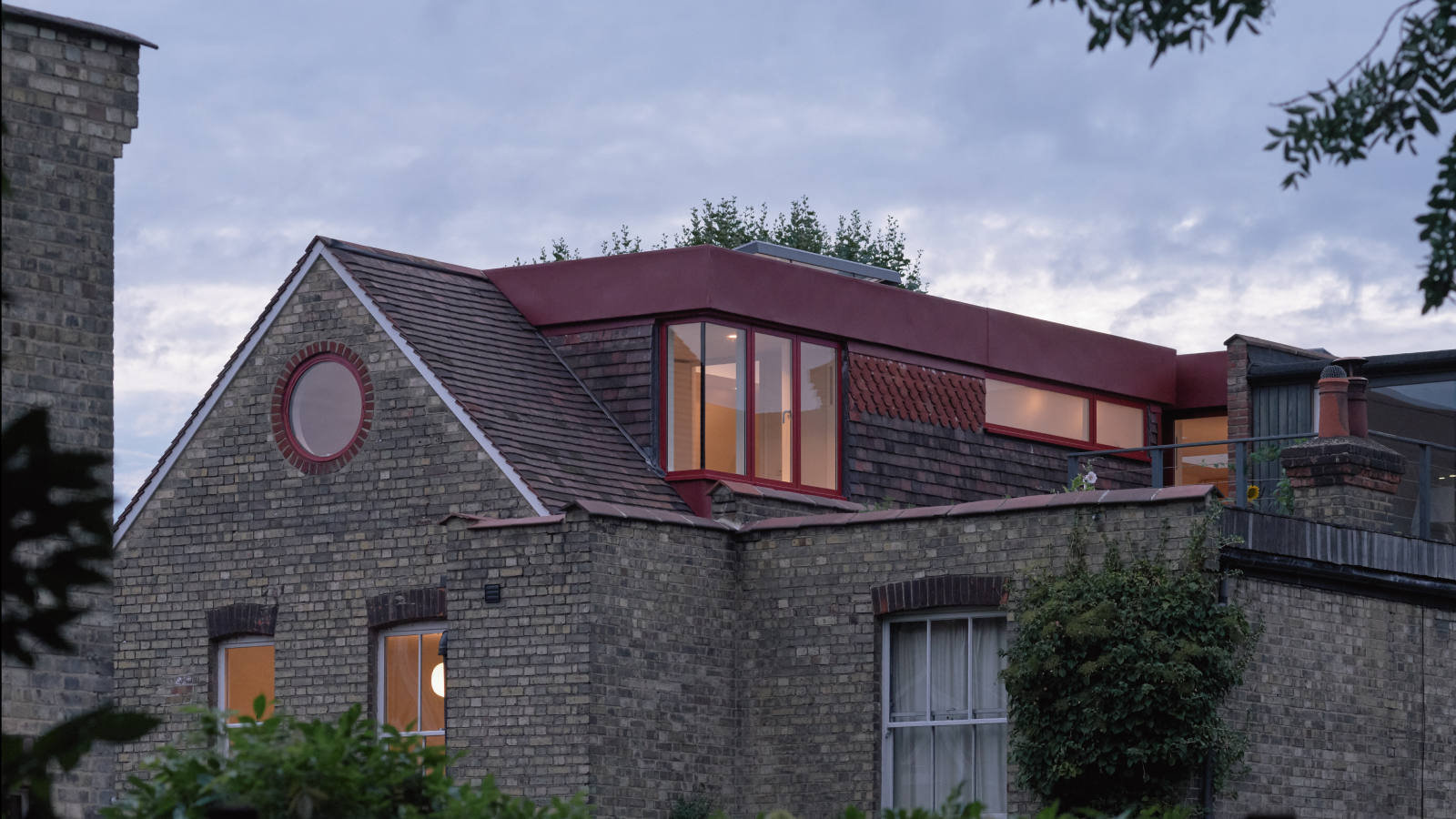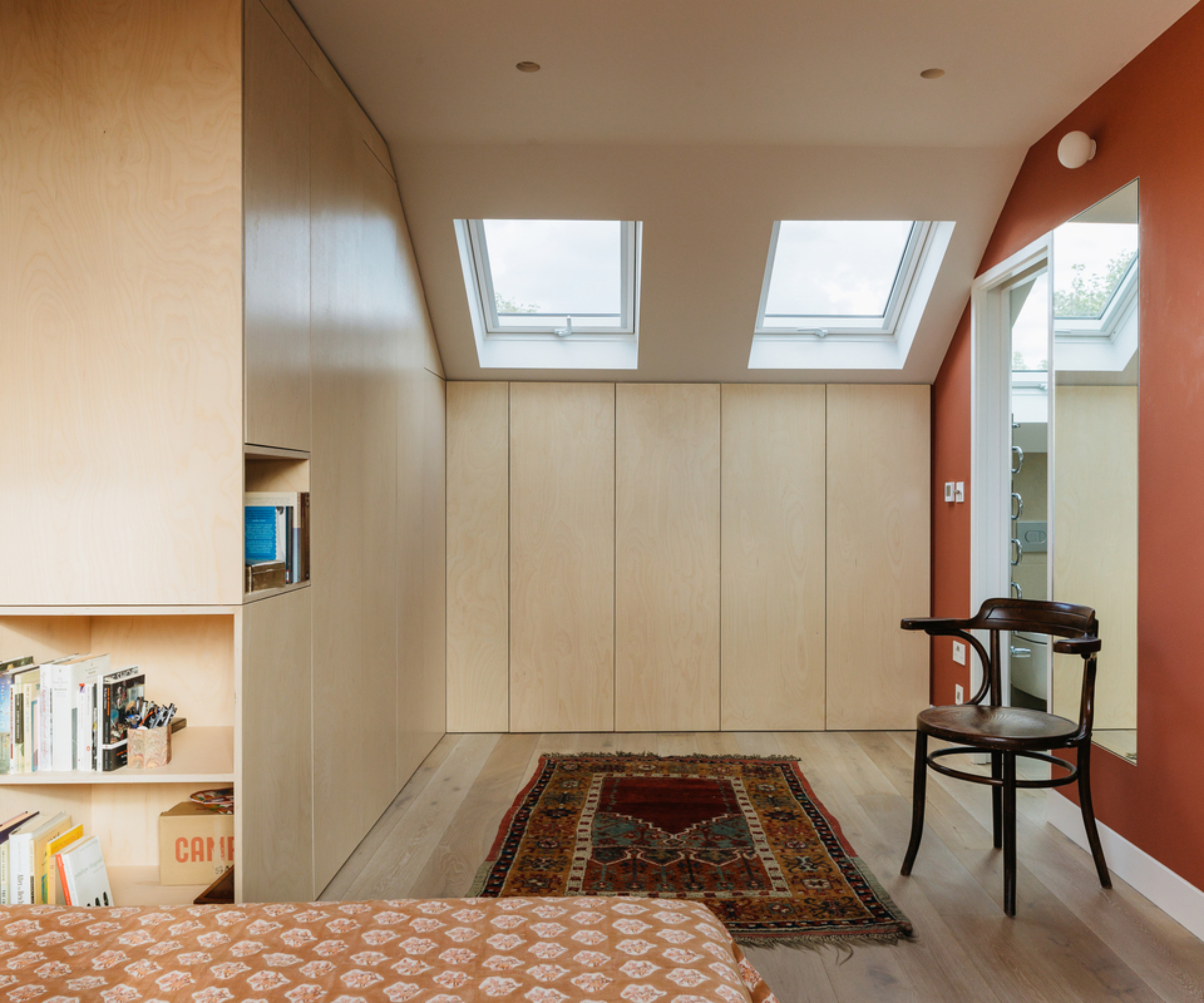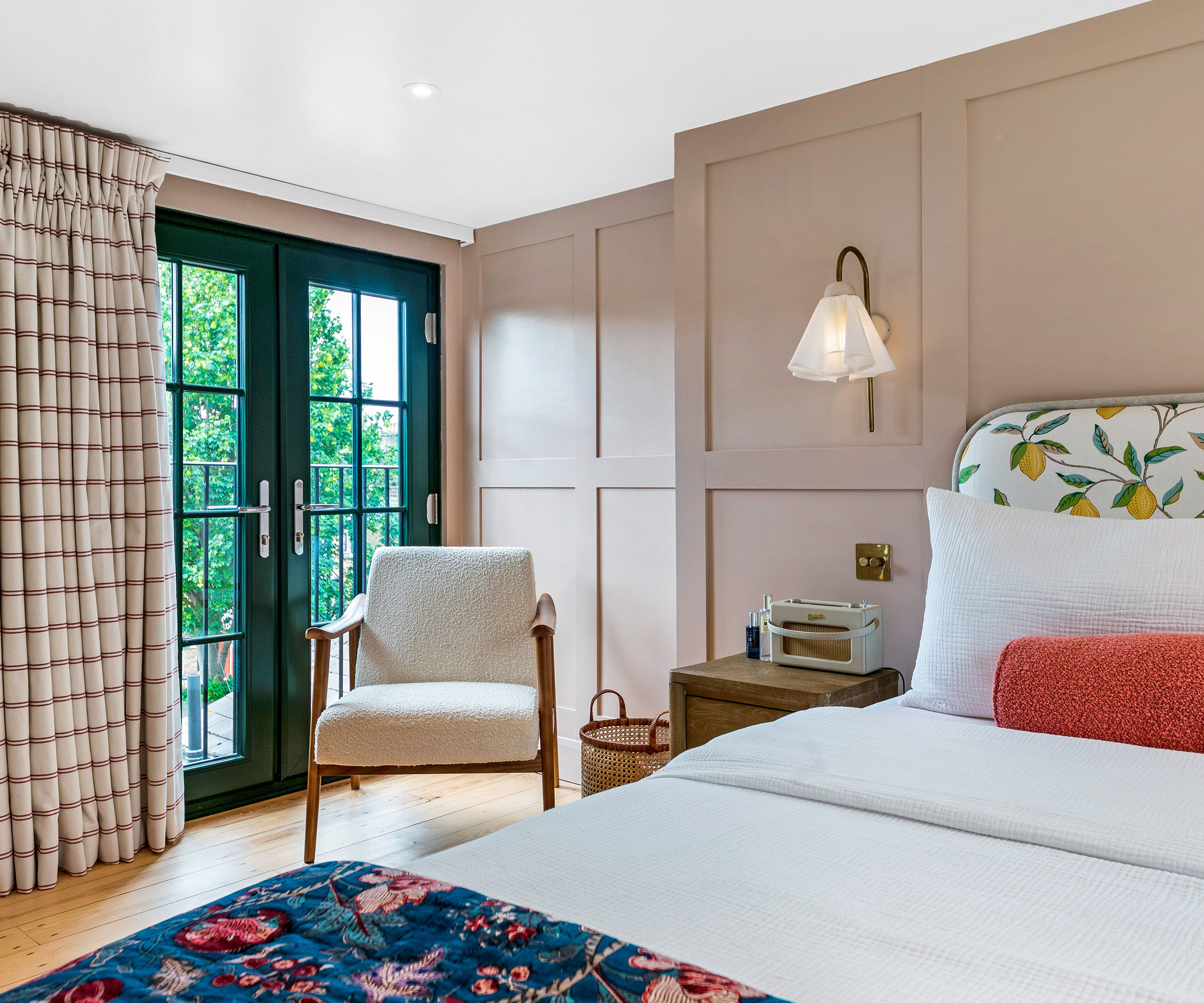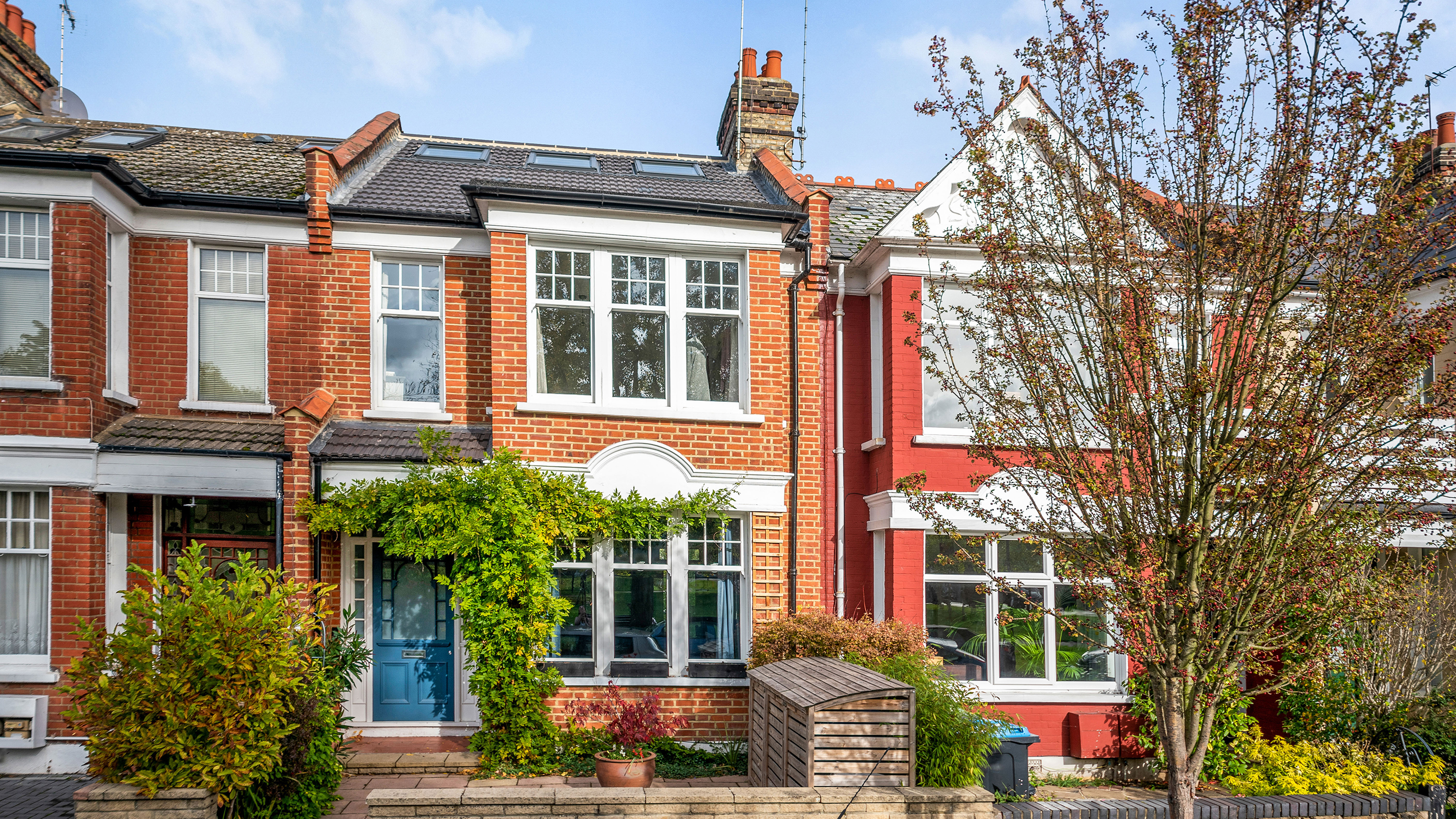Are dormer loft conversion costs within your reach? We explore what's involved and how to save
A dormer loft can add space, value and even kerb appeal to your home. But, how much are dormer loft conversion costs and how can you ensure you don't overspend?

Bring your dream home to life with expert advice, how to guides and design inspiration. Sign up for our newsletter and get two free tickets to a Homebuilding & Renovating Show near you.
You are now subscribed
Your newsletter sign-up was successful
Any type of home extension or improvement is usually a case of balancing needs vs budget. Understanding what, and how much space you can get for your money means questions such as 'how much does a dormer loft conversion cost' will be top of your list when exploring your options.
Although the style, the current condition of your home and how you want to use your dormer loft conversion will all influence the final costs, having an idea of how much your money will realistically get you is always a good place to start.
In this guide to dormer loft conversion costs we'll cover off all of the above, and also share some top tips for saving money so you can make sure your budget stretches as far as it can.
What factors affect dormer loft conversions most?
There are so many variables to take into account when considering loft conversion costs meaning that the price your neighbour paid for a different type of loft conversion is likely to be quite different to the quote you receive.
“Dormer loft conversions tend to involve more structural work and often require input from a structural engineer," explains Sally McClean, loft conversion expert at Rooftop Rooms.
“Another key factor is the time and labour involved," she adds, "as dormer conversions need more materials and take longer to complete than simpler rooflight loft conversions. Costs can vary depending on the dormer’s size and design, but they’re generally higher than those of a basic conversion.”
Other general factors that will influence what you pay include:
Bring your dream home to life with expert advice, how to guides and design inspiration. Sign up for our newsletter and get two free tickets to a Homebuilding & Renovating Show near you.
- The area you live in
- What type of roof construction your house has
- The size and complexity of your proposed conversion
- What you plan on using the new space for
- The spec you are aiming for


Sally McClean has been with Rooftop Rooms for over 15 years, and has a wealth of experience in loft conversions She combines her deep industry knowledge with a focus on ensuring every project is a success for the homeowner.
How much does the average dormer loft conversion cost?
"A typical dormer loft conversion cost can vary between £55,000 up to £80,000 depending on the specification of the build," advises Rob Wood, managing director at Simply Loft. "Average dormer loft conversion costs can vary quite dramatically depending on where you are located and the finer details of what you require internally in your loft conversion. For an accurate dormer loft conversion price, it is important that you seek the expertise of a loft conversion specialist."
“For most terraced and semi-detached homes, the cost of a full dormer conversion typically falls between £40,000 and £60,000," is Sally McClean's view, but, "the final price will depend on factors like the size, design, and materials used," she agrees.
As mentioned, the area in which you live will have a strong part to play in how much you pay, with homeowners in London likely to pay a higher price for any type of home extension or loft conversion.
"The cost of a London loft conversion can go closer to £90,000, depending on factors such as design, specifications, size, and location," says Rob Wood. "From windows and doors to bathrooms and more, the internal specifications also play a role in determining the overall cost."


Robert co-founded Simply Loft in 2010, following the success of his Simply Extend brand. The company provides a range of extension services across London and the Midlands.
How can you reduce dormer loft conversion costs?
If you are on a tight budget and after after ways to turn your dormer loft conversion ideas into reality without overspending, there are several ways you can keep a lid on costs.
“When it comes to keeping costs down on a dormer loft conversion, it’s all about smart planning and sensible choices," says Sally McClean. "A simple design, standard-sized loft windows, and mid-range materials can significantly reduce expenses without affecting quality.
“Scheduling the work during quieter periods and getting professional advice early on means you can also avoid any unnecessary or unexpected planning fees,” she adds.
"The simplest option to convert your loft is to hand the project over to a specialist design and build contractor, or to an architect who then helps you find and manage a builder," says Paula Higgins, CEO of Home Owners Alliance, "but there is a cost for paying someone else to manage the project for you and take on the stress," she warns.
"If you have the time and knowledge required to hire subcontractors, buy materials and manage the build, you can reduce costs by 10-20%," she suggests.
"Choice of materials and finishes will also affect cost, with simple off-the-shelf standard rooflights, stairs and standard design details being the most cost-effective, and bespoke windows, stairs and cabinetry all adding significant cost," continues Paula.

Paula Higgins, CEO of Home Owners Alliance, spent 15 years reforming housing policy in government before deciding enough was enough. Homeowners needed a voice and HomeOwners Alliance was born.
Are there cheaper options than a dormer loft conversion?
Dormer loft conversions are classed as mid-priced when compared to other types of loft conversion, meaning that while there are cheaper alternatives to a dormer loft conversion, they are not the most expensive either.
According to Simply Loft, the average rooflight loft conversion comes in at around £50,000.
"Skylight loft conversions, which require fewer materials, and loft pods or L-section only loft conversions are typically considered small conversions, and therefore tend to be less expensive than larger projects," says Rob Wood.
Mansard loft conversions and hip-to-gable conversions sit right at the top of the scale with an average price of between £60,000 - £70,000.

Will a dormer loft conversion add value to a house?
The good news here is that, while adding a dormer loft conversion to your home is obviously going to make a dent in your bank balance, just as when building an extension of any kind, a loft conversion will also add value – as well as coming with many benefits to those who don't plan on moving on any time soon.
"The precise value that a loft extension can contribute to a property can vary considerably, influenced by factors such as the property’s location, the quality of the extension, and the local market," explains Rob Wood. "However, in general, a well-designed and skilfully executed loft extension has the potential to significantly enhance a property’s value."
“A dormer loft conversion can add real value to a home by increasing both its living space and appeal," agrees Sally McClean.
"It’s a popular way to create loft conversion bedrooms, or even a master suite with a study or seating area. The vertical design allows for standard windows that fill the room with natural light.
"It can also boost kerb appeal," she adds, "especially when designed with features like picture windows or small loft conversion balconies that add character.”
Q&As
What is a flat roof dormer loft conversion?
There are several different types of dormer loft conversion – with the flat roof style being just one of them.
"The flat roof dormer loft conversion is a simple structure that can be added to the front and/or rear of the loft," explains Rob Wood. "It provides a fairly simple way to expand the usable space in the loft, increasing head height and providing lots of natural light afforded by the dormer windows." They can be single or full-width.
Do dormer loft conversions take a long time?
"The average time it typically takes for a dormer loft conversion to build is four and a half weeks," says Rob Wood. "It could take one or two weeks longer to complete depending on the type of dormer loft conversion."
While dormer loft conversions are a great way to add space and value to your home, they can cause problems if you've not followed the correct advice.
Even if you're taking the route of using a specialist contractor who will manage the process for you, make sure you're up to date with loft conversion building regulations so you can ensure the quote you receive meets the necessary guidelines. And, if you think even the addition of dormers still won't give you enough ceiling height, find out what's involved in raising the roof to give you that extra headspace to make your conversion more practical.
Natasha was Homebuilding & Renovating’s Associate Content Editor and was a member of the Homebuilding team for over two decades. In her role on Homebuilding & Renovating she imparted her knowledge on a wide range of renovation topics, from window condensation to renovating bathrooms, to removing walls and adding an extension. She continues to write for Homebuilding on these topics, and more. An experienced journalist and renovation expert, she also writes for a number of other homes titles, including Homes & Gardens and Ideal Homes. Over the years Natasha has renovated and carried out a side extension to a Victorian terrace. She is currently living in the rural Edwardian cottage she renovated and extended on a largely DIY basis, living on site for the duration of the project.

